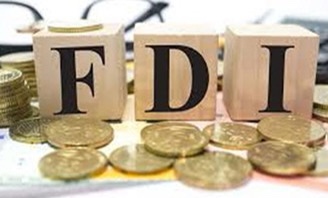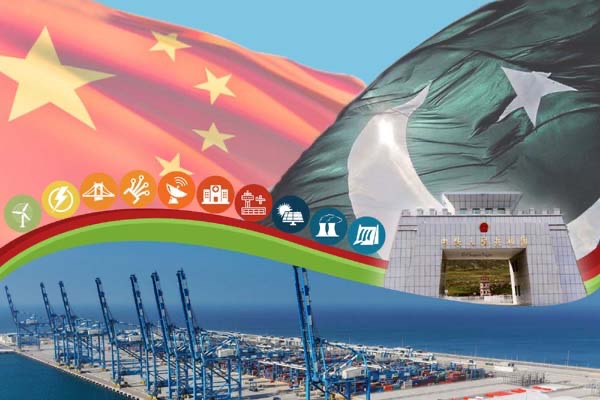Pakistan needs higher levels of Foreign Direct Investment (FDI) to keep sustainable economic growth, which requires the nation to improve its business environment. How to optimize Pakistan’s investment climate and attract international investors? Haroon Sharif, former Minister of State and Chairman of the Board of Investment gives tailored suggestions for Pakistan.
FDI key element for Pakistan’s economic growth
“It is important to understand that FDI is one of the key elements for economic growth, particularly for countries which have progressed during the past 20 to 30 years in Asia.
These Asian countries, including China, Malaysia, Bangladesh and Vietnam, all have opened up their markets to FDI, which not only has brought in money, but also many managerial and technological expertise.
Sharif recalled the visit to Malaysia with Prime Minister Imran Khan in 2018. In response to the question of how Malaysia grew rapidly, Mahathir bin Mohamad, then Prime Minister of Malaysia, told Sharif two key messages.
One is to let people make money legitimately. The other is to give special incentives for opening up market to new technologies and FDI.
Sharif said, “Pakistan’s productivity is low. We do need FDI to boost our production.” He added that Pakistan’s sustainable economic growth can be achieved by higher volumes of long-term investment instead of by loans.
“We welcome Saudi Arabia, China, Qatar, Malaysia and UAE to invest in Pakistan.” he said.
Issues of Pakistan’s Investment Climate
Together, four things make the investment climate in a country.
One is a nation’s ability to ensure a person’s property rights.
The second one is whether it can resolve disputes emerged from commercial transactions efficiently, quickly and judicially.
Sharif said, “There is nothing worse than a country if it gives a message to the world that it can’t resolve disputes.”
The third one is to ensure good infrastructure, like energy and transport infrastructure. Economic zones in Pakistan are trying to offer that for investors.
The last one is the regulatory regime.
Sharif pointed out that Pakistan should ensure the consistency of its policies. If policies continue to change with the change of government or officials, no investor will take the government seriously.
“The investment capital is the most coward thing in the world. If an investor knows the policy will not support tomorrow, nobody will take a long-term position,” he said.
Pakistan should also pay attention to the stability problem. Senior and large investors will be cautious in an atmosphere of conflicts, like regional conflicts. These are big issues for Pakistan to tackle.
Improving Ease of doing business to attract investments
World Bank usually releases a report on Ease of Doing Business Rankings. Pakistan was placed at 136th place in 2018 from 147th in 2017. With efforts of less than a year, Pakistan was ranked 108th in 2019 after fundamental reforms carried out, making it one of the top 10 business climate improvers globally.
The indicators of World Bank’s Ease of Doing Business Index, include starting a business, registering commercial property, getting construction permits, trading across borders, getting credits and solvency.
“Now, we are proud to announce that people can register a new company online within 24 hours in Pakistan, which is as good as going anywhere in the world. I have tested it by myself, and it really works,” said Sharif.
In terms of taxation, relevant government departments have been taking measures to make tax payment easier. Now people can pay taxes online in one portal.
As for judicial issues for Ease of Doing Business, Sharif advised to learn from other countries to set up corporate space usually called international finance centers.
For this kind of corporate space, the law of the land where the international finance center was set up shall not apply to. Instead, the international law mostly British law shall apply to the space. All disputes and matters are resolved within that space.
UAE, Qatar, Tajikistan and Kazakhstan all have established their Financial Centers. Businesses registration could be expedited by international legal regime there.
“I think that Pakistan needs to come up with a similar thing within our economic zones. It is like a ship. Everything is provided within it, including rules of games for dispute resolution, registration, legislation, taxation and customs,” said Sharif. “That’s the way for Pakistan actually to facilitate investors,” he added.
“We should have a tailored policy for Ease of Doing Business in Pakistan,” said Sharif. “The policy should be in accordance with local environment, fit for its culture, and can actually create incentives, as each country has a different challenge,” he added.
For Pakistan, the fundamental thing is to cut down the human interaction of state agencies. A big reform each government can do is actually to automate most human-dealt with processes and others.
The mindset of bureaucracy should change to facilitate rather than control business. Reform is not about making new laws, but a lot of letting goes.
Sharif said, “It can cut down a lot of unnecessary regulatory costs. The whole of ease of doing businesses regime is meant to shrink the size of effort required for commercial transactions.”
Sharif emphasized that his message is “Automation, automation, and automation.”
Sharif said, “Apart from cutting down the costs of doing business, we need also to invest in research and talents to improve our competitiveness. If your product is not competitive, no matter how cheap you made, nobody will buy. If your product is of high-quality and world class competitiveness, even a higher price tag would be acceptable.”
“If we could move forward to that direction, I think Pakistan can offer great opportunities for investors,” said Sharif.
“We have young labor market. They are English-speaking graduates and mid-level managers who can do wonders in IT industry. We need to shift our business and economy from efficiency-based to knowledge-based. Unless do that, the value addition will not happen,” he said.
Sharif shared a story when he visited China officially with PM. At a big exhibition, Pakistan, as a good friend of China, was given a big stall next to the host’ s.
At China’s stall, all kinds of high-tech issues were showcased, including space tech, AI and so on.
By contrast, there were oranges, footballs and other very basically commodities in stall of Pakistan. “We need to increase our productivity. That can only do with knowledge,” Sharif said.

















